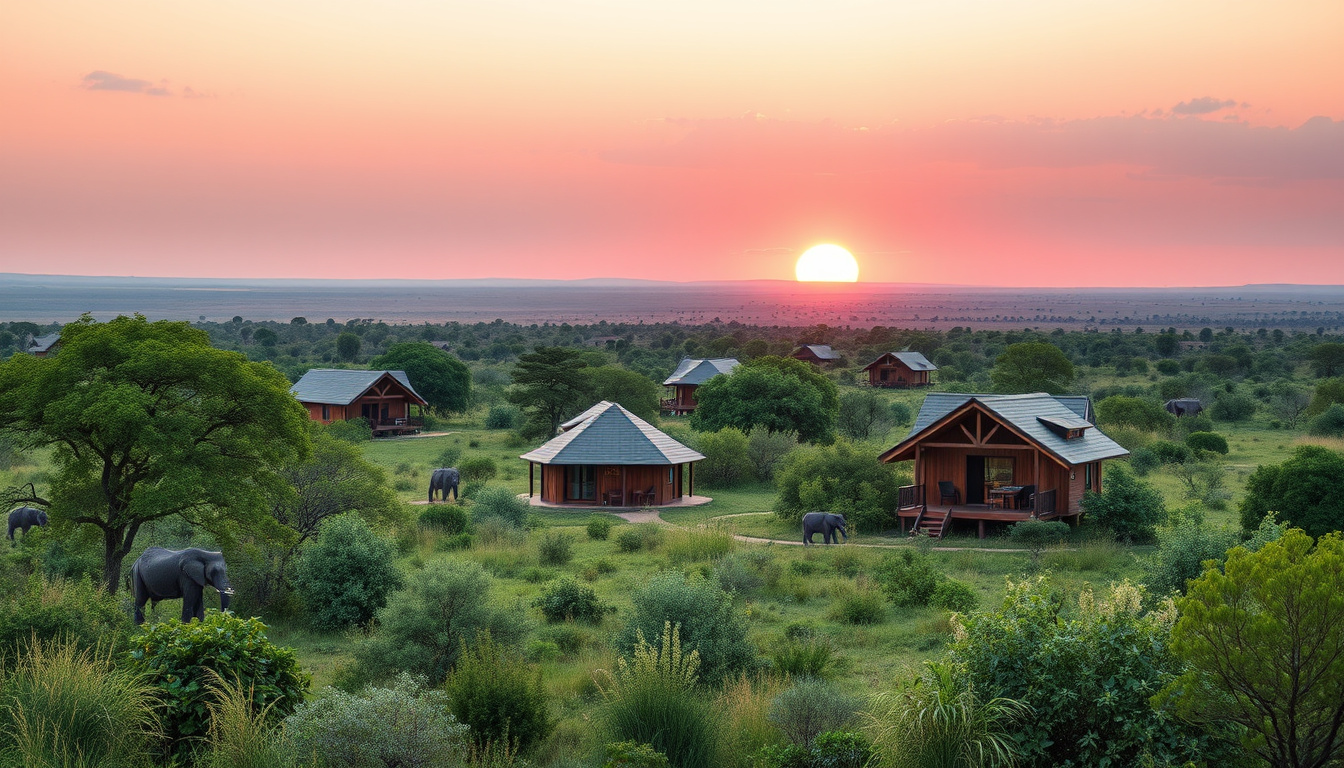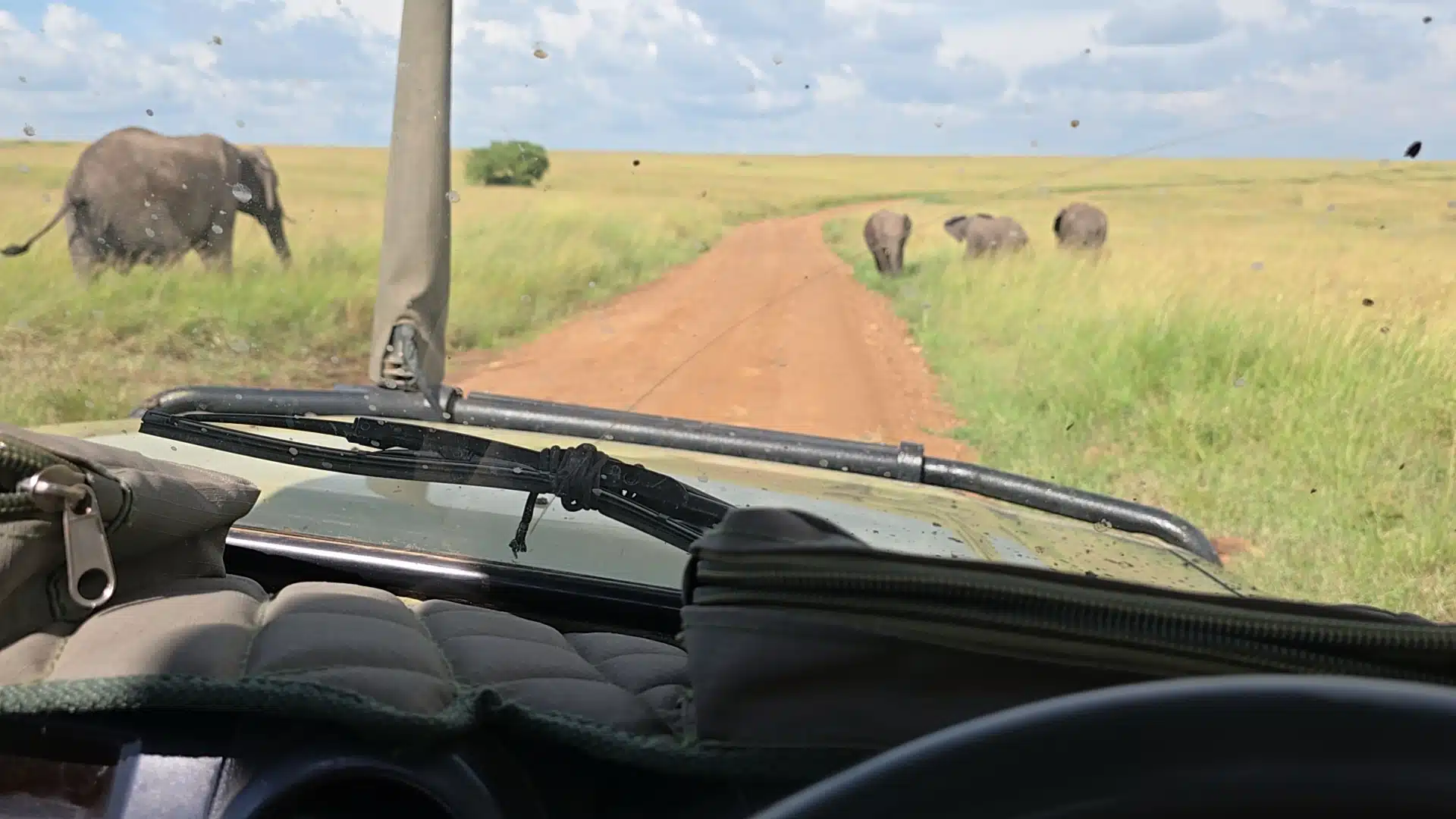Embarking on a safari in Kenya is a dream for many travelers, offering unparalleled opportunities to witness majestic wildlife in their natural habitat. However, with the beauty of this experience comes the responsibility of preserving it for future generations. This guide to sustainable safari travel in Kenya explores how you can enjoy the thrill of the wild while minimizing your impact on the environment. From choosing eco-friendly accommodations to supporting local communities, learn how to go green while experiencing the adventure of a lifetime.
Key Takeaways
- Sustainable safari travel in Kenya focuses on minimizing environmental impact while enjoying wildlife experiences.
- Eco-friendly practices are crucial for preserving wildlife and habitats in tourism-driven regions.
- Selecting sustainable lodges and operators enhances eco-conscious travel and supports responsible tourism.
- Travelers can reduce their carbon footprint by choosing low-impact transport and being mindful of resource use.
- Supporting local communities fosters conservation efforts and enriches the overall safari experience.
Understanding Sustainable Safari Travel
Sustainable Safari Travel in Kenya – How to Go Green is an essential consideration for eco-conscious travelers looking to experience the stunning wildlife and diverse landscapes that Kenya offers, while minimizing their environmental impact. As one of the most biodiverse habitats on the planet, Kenya provides a unique opportunity to engage in responsible tourism practices. To embark on a sustainable safari journey, consider choosing eco-friendly lodges that prioritize conservation efforts and support local communities. Opt for guided tours led by knowledgeable local guides who adhere to ethical wildlife viewing guidelines, ensuring that your presence does not disrupt the natural behavior of the animals. Additionally, being mindful of your carbon footprint by traveling during off-peak seasons, utilizing public transport, or even participating in carbon offset programs can greatly reduce your environmental impact. By prioritizing Sustainable Safari Travel in Kenya, you not only enrich your travel experience but also contribute to the conservation of Kenya‘s rich biodiversity for future generations.
The Importance of Eco-Friendly Practices in Wildlife Tourism
Sustainable safari travel in Kenya – how to go green – has become an essential focus for wildlife tourism as travelers increasingly seek to minimize their environmental footprint while enjoying the breathtaking landscapes and rich biodiversity this beautiful country offers. Adopting eco-friendly practices not only protects the majestic wildlife and their habitats but also supports local communities and economies. By choosing eco-conscious lodges that utilize renewable energy, engaging in guided tours that prioritize animal welfare, and participating in conservation programs, visitors can contribute positively to the preservation of Kenya‘s natural heritage. Furthermore, making conscious decisions, such as opting for sustainable transportation methods and reducing waste, enhances the overall safari experience by fostering a deeper connection with the environment. As travelers embrace sustainable safari travel in Kenya, they play a crucial role in promoting responsible wildlife tourism that benefits the planet for generations to come.
‘The greatest threat to our planet is the belief that someone else will save it.’ – Robert Swan
Choosing Sustainable Safari Lodges and Tour Operators
Choosing sustainable safari lodges and tour operators is essential for those interested in sustainable safari travel in Kenya – how to go green while experiencing the country’s breathtaking wildlife and unique ecosystems. When planning your adventure, it’s crucial to opt for accommodations that prioritize eco-friendly practices, such as using solar energy, conserving water, and supporting local communities. Research lodges that have received certifications for their sustainability efforts, such as Ecotourism Kenya or Green Globe. Moreover, selecting tour operators who commit to ethical and responsible tourism can amplify your impact; these guides often work to minimize their carbon footprint and contribute to conservation projects. By consciously choosing where to stay and who to tour with, travelers can enjoy the majestic landscapes and diverse species of Kenya while making a positive contribution to the environment and local economies. This approach ensures that your dream safari aligns with global sustainability goals, allowing you to relish every moment without the ecological guilt.
How to Minimize Your Carbon Footprint on Safari
When it comes to sustainable safari travel in Kenya – how to go green, there are several impactful steps you can take to minimize your carbon footprint while enjoying the spectacular beauty of the African wilderness. First and foremost, consider eco-friendly lodges and camps that prioritize environmental conservation and support local communities. These accommodations often use renewable energy sources, implement water conservation measures, and promote wildlife protection initiatives. Additionally, choose to travel during the off-peak season – which not only helps reduce congestion in popular parks but also lowers your overall carbon emissions associated with transportation. It’s crucial to think about your safari activities as well; opt for guided walking safaris or bicycle tours, as these have a significantly lower environmental impact compared to traditional vehicle-based safaris. Finally, contribute to Kenya‘s conservation efforts by supporting local conservation programs and participating in community projects that help preserve the rich biodiversity of the region. By making conscientious choices during your journey, you can embrace the beauty of Kenya‘s landscapes while ensuring that they remain pristine for generations to come.
Supporting Local Communities and Conservation Efforts
When considering sustainable safari travel in Kenya – how to go green, it’s essential to recognize the profound connection between supporting local communities and conservation efforts. Choosing eco-friendly safari operators who prioritize community engagement ensures that your travel dollars go directly to the people living in these stunning landscapes, promoting local economies. These operators often employ local guides, which enriches your experience and fosters a deeper understanding of the region’s biodiversity and cultural heritage. Furthermore, many safari lodges are designed with sustainable practices, such as solar energy, water conservation systems, and waste reduction programs, all aimed at minimizing their environmental impact. By participating in responsible tourism, travelers not only enjoy breathtaking wildlife encounters but also play a crucial role in conserving Kenya’s natural resources and supporting initiatives that protect endangered species. Thus, when planning your next adventure in the wild, consider how your choices can lead to more meaningful experiences while contributing positively to both the environment and local communities.
Tips for Travelers: Pack Light and Respect the Environment
Traveling sustainably is a growing trend, especially for those looking to experience the breathtaking wilderness of Kenya. Sustainable safari travel in Kenya – how to go green – is not just a choice for the environmentally-conscious, but a vital part of preserving the natural beauty and wildlife of this stunning destination. To pack light and respect the environment, start by choosing multipurpose clothing that can be layered and suited for various weather conditions. This not only reduces the weight of your luggage but also ensures that you are prepared for Kenya’s diverse climate. Opt for eco-friendly toiletries and reusable water bottles to minimize single-use plastics and harmful waste. When it comes to your safari experiences, opt for reputable lodges and tour operators that prioritize sustainability, engage in local conservation efforts, and support community projects. By being mindful of your footprints – both literal and metaphorical – you can contribute to the preservation of Kenya‘s landscapes and wildlife, making your adventure both memorable and responsible. Remember, every small action counts in the grand scheme of sustainable safari travel in Kenya.





